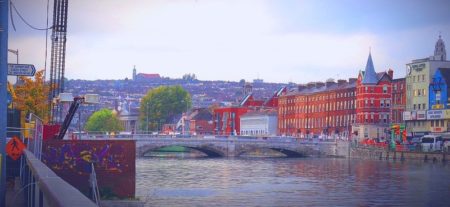12 May 2025
By Roger Kennedy
roger@TheCork.ie
Entertainment
For years, Saturday mornings in Cork meant quick runs to the supermarket, queues at the butcher’s, or aimless walks through shopping centers. But lately, something’s shifted. Now, more and more people are skipping retail chains and heading to small, open-air craft markets. Some of them pop up by the river, others on cobbled corners ne. Each week brings a lineup of local bakers, artists, soap makers, woodworkers, brewers, and secondhand booksellers.
What’s driving this change? It’s not just about buying things. It’s about how things are made, and who makes them. People want stories behind their purchases. And no brand campaign can fake that kind of connection. Whether it’s a hand-stitched linen dress or raw honey bottled by a retired teacher in Douglas, people are after goods that feel like they came from somewhere real. One visitor, who came down from Galway after reading about it on a Tonybet Ireland blog, said it best: “I just wanted to see the soul of Cork.”
A New Kind of Shopping
These craft markets aren’t selling luxury, and they aren’t pushing scarcity. There’s no fast fashion, no black-and-white sale signs. It’s slower. More honest. A jar of elderflower jam might be five euros, but it comes with a five-minute story about the bog where the flowers grow. You pay, and you feel good. That’s rare these days.
Even more interesting, the people running these stalls aren’t full-time sellers. Some are artists. Some are out-of-work chefs. Some are just people who got tired of nine-to-five and wanted to try something that felt more real. They’re makers. Creators. And every Saturday, they come together to share what they’ve built.
It’s hard to fake that kind of passion. And people know the difference.
The Market as a Social Space
What’s wild is that these markets aren’t just for shopping. They’ve become places to meet people. Strangers talk over coffee stalls. Kids run around while someone plays a banjo near the cheese truck. One local said she met her best friend over a stall selling beeswax wraps. “We both reached for the same pattern and ended up talking for two hours.”
In a world where so much happens online, that kind of face-to-face moment feels almost radical. People are coming for bread and walking away with friendships. It’s local life, rebuilt from scratch.
Micro-Economies with Big Heart
From a business angle, this movement might seem small. But it’s having a real effect. Markets like these are helping Cork’s micro-economy breathe. When someone buys a loaf of sourdough from a baker in Ballyvolane, the money stays close. It doesn’t float up to a corporate HQ overseas. It pays for new equipment. It feeds kids. It fuels more local ideas.
Some weekends now, the smaller markets make more than some local shops. One stallholder said she brought in 600 euros in four hours. Not life-changing, but enough to pay rent, restock her supplies, and return the next week. “It’s not just about income,” she said. “It’s about being part of something that actually matters.”
Looking Ahead
City officials are starting to notice, some councils have begun waiving small vendor fees. Others are talking about making market permits easier to get, and the best part is the growth isn’t led by big plans or big investors. It’s being built stall by stall, person by person.
That kind of bottom-up movement is rare, especially in towns where global chains have swallowed so much street life. But in Cork, it’s alive and well. From Clonakilty to Blackrock, there’s a quiet rhythm growing; people walk, talk, and trade in ways that just feel right. No ads. No scripts. Just goods made by hand and passed hand to hand.
Every jar, every loaf, every stitched scarf tells a bit of Cork’s story. And more people are listening every week. The market isn’t the future. It’s now. And in Cork, it’s thriving. Would you like a list of Cork’s best weekly markets to go with this story?

